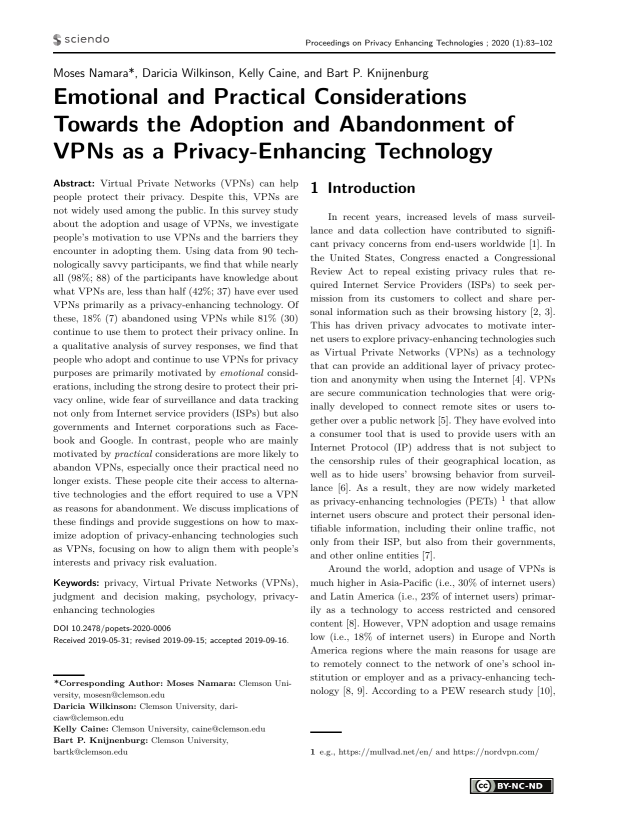Emotional and Practical Considerations Towards the Adoption and Abandonment of VPNs as a Privacy-Enhancing Technology
Authors: Moses Namara (Clemson University), Daricia Wilkinson (Clemson University), Kelly Caine (Clemson University), Bart P. Knijnenburg (Clemson University)
Volume: 2020
Issue: 1
Pages: 83–102
DOI: https://doi.org/10.2478/popets-2020-0006
Abstract: Virtual Private Networks (VPNs) can help people protect their privacy. Despite this, VPNs are not widely used among the public. In this survey study about the adoption and usage of VPNs, we investigate people’s motivation to use VPNs and the barriers they encounter in adopting them. Using data from 90 technologically savvy participants, we find that while nearly all (98%; 88) of the participants have knowledge about what VPNs are, less than half (42%; 37) have ever used VPNs primarily as a privacy-enhancing technology. Of these, 18% (7) abandoned using VPNs while 81% (30) continue to use them to protect their privacy online. In a qualitative analysis of survey responses, we find that people who adopt and continue to use VPNs for privacy purposes are primarily motivated by emotional considerations, including the strong desire to protect their privacy online, wide fear of surveillance and data tracking not only from Internet service providers (ISPs) but also governments and Internet corporations such as Facebook and Google. In contrast, people who are mainly motivated by practical considerations are more likely to abandon VPNs, especially once their practical need no longer exists. These people cite their access to alternative technologies and the effort required to use a VPN as reasons for abandonment. We discuss implications of these findings and provide suggestions on how to maximize adoption of privacy-enhancing technologies such as VPNs, focusing on how to align them with people’s interests and privacy risk evaluation.
Keywords: privacy, Virtual Private Networks (VPNs), judgment and decision making, psychology, privacyenhancing technologies
Copyright in PoPETs articles are held by their authors. This article is published under a Creative Commons Attribution-NonCommercial-NoDerivs 3.0 license.

